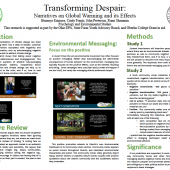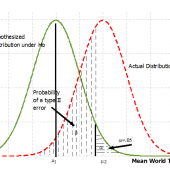
Although higher education institutions are being encouraged to reorient their curricula to address sustainability, not everyone accepts the tenets of the United Nations’ mainstream approach to education for sustainable development (ESD), especially David Selby. This paper recounts intellectual gold nuggets garnered from critically reading his scholarship about education for sustainable contraction to counter climate change and global heating (instead of global warming). His ideas are deemed both enticing and disconcerting but apropos for these ‘interesting times.’ They provide a way for people to walk a different path than mainstream ESD one that respects transience, contraction, moderation and sustainability. This can best be achieved by deep education leading to deep, quantum learning so people can engage with the fears and truths staring them in the face. The thoughts shared in this paper should resonate with educators, politicians, industry leaders, civil society and the media.
Continue Reading
Ezimora et al JSE Nov 2015 Hope Issue PDF share: Recommend on Facebook Tweet this
Continue ReadingThis case study presents the threat that newly formed glacial lakes pose for mountain dwellers as well as infrastructure down valley. The article discusses efforts under way in Apolobamba National Park to include glacial lakes in their “social monitoring” system in order to include the local population in defining management options for potentially dangerous glacial lakes.
Continue Reading
Dave Tomkins and Panagiotis Tsigaris focus their fine analytical stats skills on how to not to make the wrong kind of error…yes, that should be the right logic…regarding global warming. They elegantly lay out the math behind what we all know intuitively…nothing is to be lost from taking precautions regarding global warming, or avoiding Type II statistical error, which comes, not from assuming that humans caused global warming, even when we didn’t, but rather being unable to prove that humans cause global warming, when in fact we are causing it. They present the statistics in the context of a course case study and make it clear that we have no reason to wait on the data since the potential for this type of error is already with us and the actions to be taken are probably beneficial in other areas as well.
Continue Reading